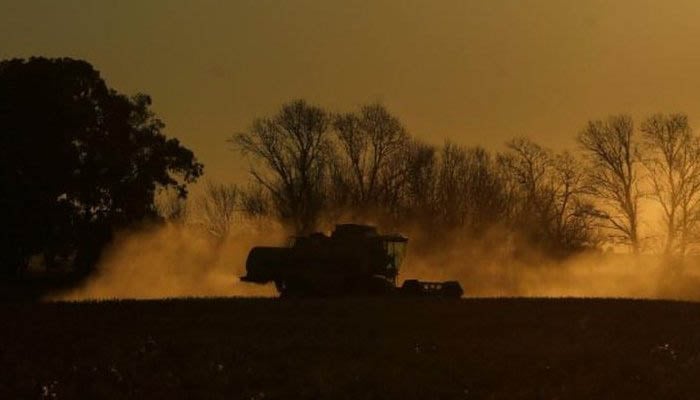Soybean dust found in blood samples of Karachi poisoning victims: KU experts' report
Soybean dust could be the cause of the poisoning which led to the deaths of 14 people and injured 300
KARACHI: A preliminary report prepared by experts at the Compiled by the International Center for Chemical and Biological Sciences (ICCBS) at Karachi University suggested that the deaths during the past couple of days had been caused by overexposure to soybean dust, reported Geo News on Tuesday.
The report states that soybean dust was found in the blood samples of the deceased persons who had died in the city on Sunday and Monday. According to sources, the report mentioned that Spain experienced a similar incident of soybean dust poisoning two years ago that affected numerous people in the country.
Senator Murtaza Wahab also tweeted that preliminary reports submitted by experts at the Karachi University had claimed that the Kaemari incident happened due to "overexposure of soybean dust".
"Preliminary report has been submitted by experts at Khi Uni which suggests that Keamari incident happened due to over exposure of soybean dust which is known to have also caused similar incidents in other parts of the world. This soybean is in a shipment docked at Khi Port," he tweeted.
The report, according to Wahab, has been sent to Commissioner Karachi Iftikhar Ali Shallwani. It is noteworthy, however, that no detailed or conclusive report has been issued at a governmental level.
The suspected gas leak in Karachi's Keamari area has so far killed at least 14 people, according to a spokesperson for the Sindh health department.
The spokesperson added that more than 300 people, including women and children, were also affected by the health disaster.
The News had reported earlier today that authorities suspected the chemical was hydrogen sulphide — a highly poisonous gas that is a byproduct of crude oil and also generated in sewerage system; however, the spokesperson only said the lethal substance had not been identified yet.
Over 100 people were moved to Karachi's public and private hospitals just last night, complaining — according to the doctors — of breathing problems, respiratory issues, stomach ache, burning sensation in eyes, and a tightness in the chest.
Karachi Port Trust (KPT) Chairperson Rear Admiral Jamil Akhtar, on the other hand, had on Monday refuted claims that the gas leakage occurred at the port or from any ship.
"We have completely inspected the area under the KPT’s jurisdiction including the terminals and berths, no evidence of a gas leak was found," Akhtar had said during a press conference.
-
Security forces gun down 30 terrorists in multiple IBOs in KP: ISPR
-
MQM-P calls for new province in Sindh
-
US report validates Pakistan military edge over India: PM
-
Banned TTP poses serious threat to Pakistan security: UNSC panel
-
CM Afridi clarifies remarks on by-poll after ECP requests army deployment
-
Dubai sees 3.2m Pakistani passengers in 2025 as airport sets new milestone
-
Security forces kill 23 Indian proxy terrorists in KP's Kurram
-
Pakistan to construct island to boost oil exploration: report












